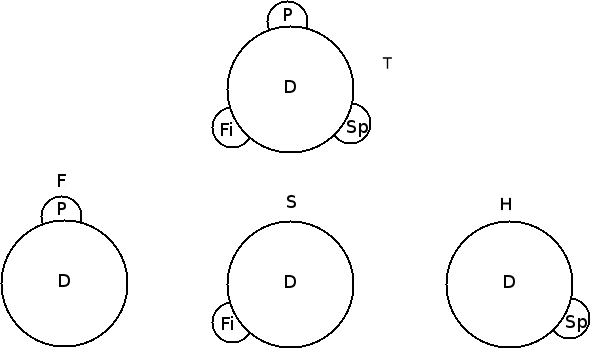podcast 156 – Dr. J.R. Daniel Kirk on A Man Attested by God – Part 2
If Jesus fulfills predictions about Yahweh, does this mean that he’s Yahweh?
If Jesus fulfills predictions about Yahweh, does this mean that he’s Yahweh?
Is it reasonable to believe in the reported miracles of early Christianity?
Is there a Trinity theory which is both orthodox and coherent? One apologist’s suggestions, with commentary.
“Difference in function does not indicate inferiority in nature.”
Do biblical theophanies show that the Challenge argument is unsound?
Devastating. I have long noted that Augustinian/Calvinist theology is unpopular among Christian philosophers, though many, like me, go through a Calvinist phase (when I was a sophomore and junior in college), before seeing its problems to be hopeless. Walls concisely and fairly sums up what Calvinism is all about, and then shows it to be profoundly problematic, focusing on philosophical problem rather than biblical ones.… Read More »Jerry Walls: What is wrong with Calvinism?
Many of you know that I’ve argued in several ways, in print, against “social” Trinity theories, and particularly the sort which holds that Father, Son, and Spirit are a group/community/quasi-family. On such theories, it turns out that the one “God” is a group – a group of equally divine selves (aka gods – though they don’t like that term in the plural). This is surprising… Read More »Is God a self? Part 1

Last time we briefly explored Redirection, the first of our four ways to respond to apparent contradictions in theology.
The response of Restraint is a little more reasonable. This person realizes that a certain way of understanding, say, the doctrine of the Trinity, seems inconsistent. The Christian walking the path of Restraint declines to endorse that way of understanding the Trinity, or any other clear formulation. “Sure, if it meant X, then it would seem contradictory… but maybe it doesn’t mean X.”
The Restrained believer neither affirms nor denies X, exercising Restraint . He declines to say precisely what the great Doctrine in question is, because (he says) he doesn’t know what it is supposed to be. Read More »Dealing with Apparent Contradictions: Part 3 – Restraint (Dale)

Here’s a second application for my Latin Trinity chart (see the first post for what the letters designate). Let’s say that a state of affairs is a thing/substance having a property at a time or timelessly.
The “persons” here are just modes of D, that is, states of affairs involving D. So the Son just is D having Fi. And the Father just is D having P. And the Holy Spirit just is D having Sp. Regarding each of F, S, and H, each of them “just is” D – in the sense that in each of them, there is one and the same D.Read More »The Latin Trinity Chart 2 – a version of FSH modalism
The traditional Christian doctrine of the Trinity is commonly expressed as the claim that the one God “exists as” Father, Son, and Holy Spirit, or as the claim that there are three divine persons “in” God, or as the claim that God “exists in three Persons”. I have to say: this drives me nuts. The “exists as” formula strongly suggests modalism, the idea that Father,… Read More »“the” Trinity doctrine – Part 1
“Let the same mind be in you that was in Christ Jesus…”
What, precisely, is “modalism,” and what, if anything, is wrong with it? I find the theological and historical literature to be depressingly unclear about this. Why? Partly it’s the sparseness and obscurity of the original sources. Partly it’s the habit of simply repeating the same lore over and over, couched in the same (sometimes unhelpful) terms, starring the same (not too well drawn) heroes and… Read More »What is Modalism?
Is this “beginning” when the cosmos was created by God, or when it was “newly created” through the man Jesus?
An evangelical author and blogger attempts a sort of primer on “the Trinity.”
Theologian Roger Olson asks, How important is the doctrine of the Trinity? He seems to hold, with many others, that …the doctrine of the Trinity is crucial, essential, indispensable to a robust and healthy Christian view of God. But, The problem is, of course, that many, perhaps most, Christians have little or no understanding of the doctrine of the Trinity. And they couldn’t care less. Indeed.… Read More »Roger Olson asks: How important is the doctrine of the Trinity?
I’ve been reading I Told Me So (review) by Gregg Ten Elshof, a USC PhD who who teaches and chairs the Philosophy Department at my undergraduate alma mater. He’s been thinking about this topic for a long time (part 2) and so far, I really like the book. It is clearly written, insightful, and he trains his guns on self-deceptions by Christians in particular. Some of… Read More »You’re Foolin’ Yourself and You Don’t Believe It – Part 1
There’s a standard answer to the question posed at the end of the last post: the doctrine of the Trinity is the claim that the Christian God is three “persons” (Greek: hypostases, Latin: personae) in one “essence” or “being” (Greek: ousia, Latin: substantia). Case closed, right? How I wish! Again, ambiguities abound. Take “persons”. Ordinarily, a “person” is a kind of thing (individual entity). You’re… Read More »“the” Trinity doctrine – Part 2
Early modern unitarian Christian scholars offer a “Socinian” take on John 1.
Thanks to Ed Feser for some interesting dialogue on the topic of mysteries in Christian theology. This post is just a bunch of miscellaneous responses to his thoughts posted last week, here and here. As he mentioned, Ed and I knew each other briefly as students at what is now called Claremont Graduate University. I remember having a conversation in his car once, maybe around… Read More »More on Mysteries
“In essentials, unity; in non-essentials liberty; in all things, love.” So far, so good. But, what does Scripture say is essential teaching about Christ and about God?